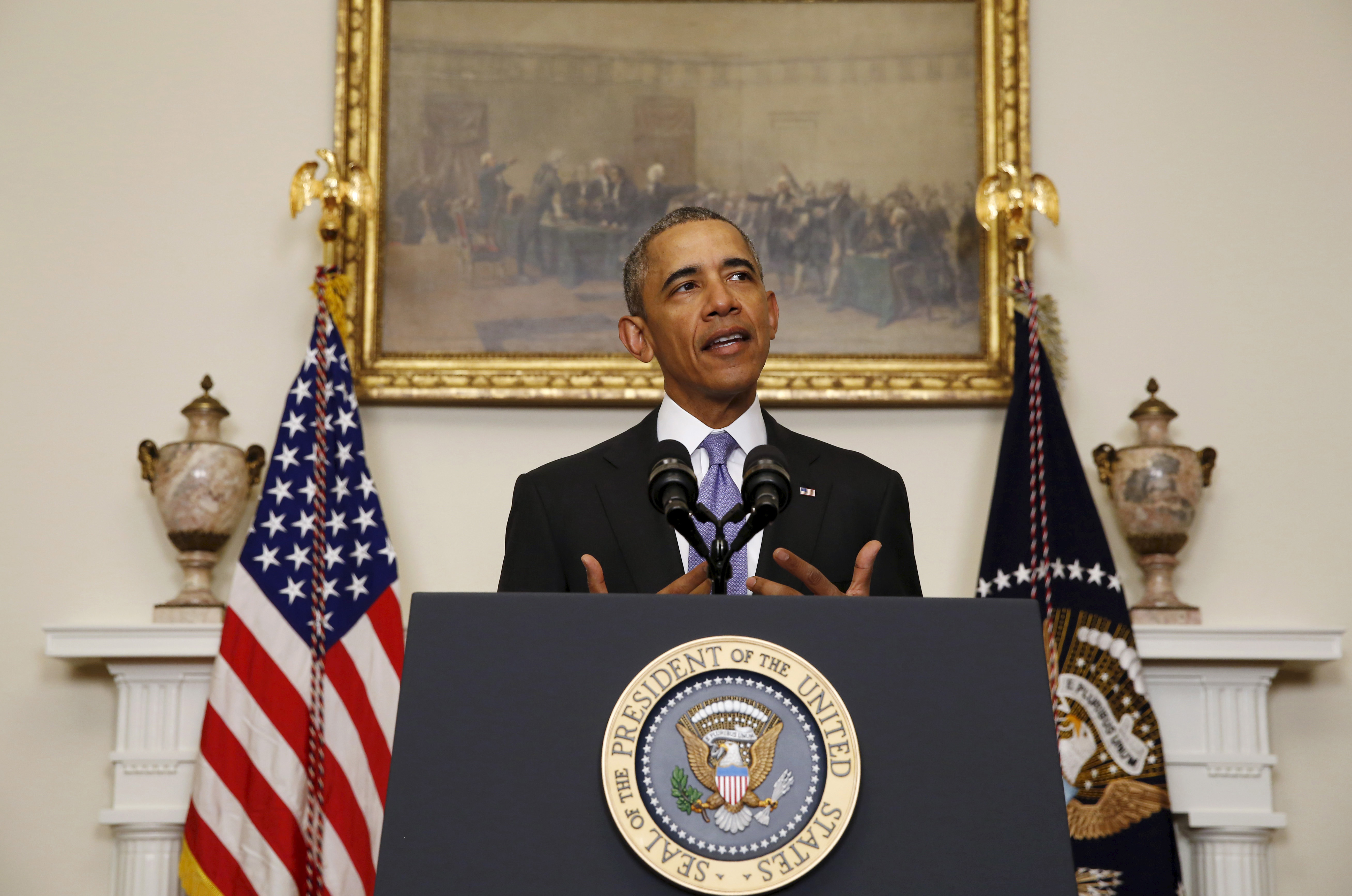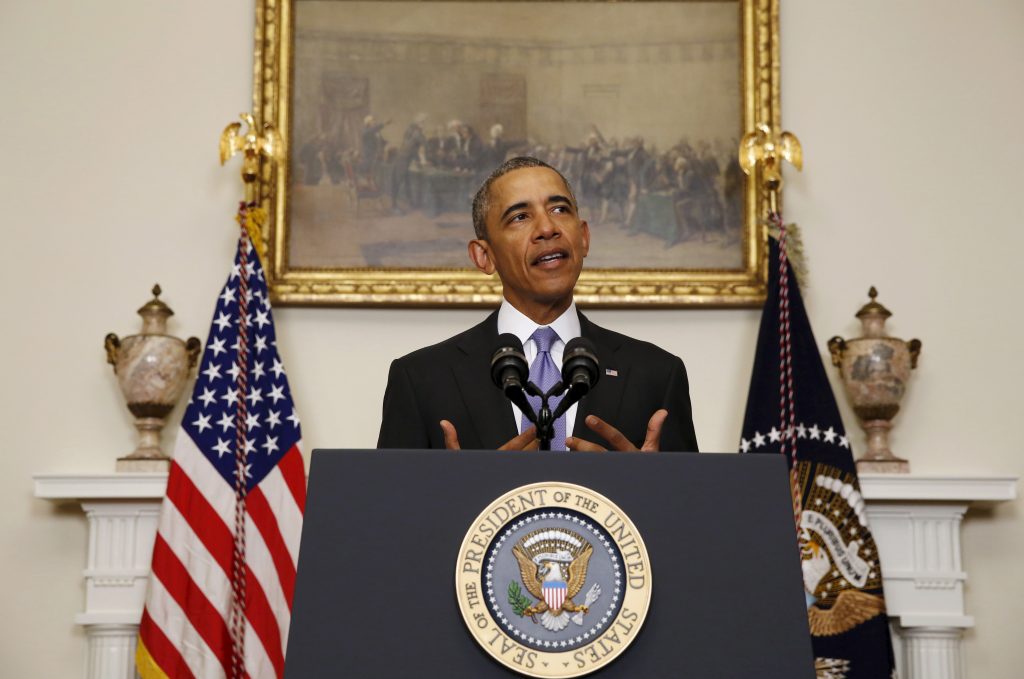
Atlantic Council’s Barbara Slavin suggests posting US diplomats to Interests Section in Tehran
The United States, the European Union, and the United Nations lifted nuclear-related sanctions on Iran on January 16 after the International Atomic Energy Agency (IAEA) certified that Iran is in compliance with the terms of the nuclear deal it reached with the P5+1 countries last year.
Barbara Slavin, Acting Director of the Atlantic Council’s Future of Iran Initiative, discussed the opportunities and challenges presented by this development in a phone interview with the New Atlanticist’s Ashish Kumar Sen. Here are excerpts from our interview.
Q: Do you expect the lifting of sanctions to bring about a change in behavior in Tehran and, specifically, lead to greater cooperation between the United States and Iran?
Slavin: Iran believes that its foreign policies are eminently justified. So I am not sure that we are going to see radical change, but I am hopeful that the United States and Iran can maintain these extraordinary channels that have been created during the nuclear negotiations to talk about Syria, Yemen, Iraq. But there are no guarantees.
It looks as though the next round of Syria talks has been postponed, and the next round of Yemen talks has been postponed, so there is going to have to be some more time before the tensions between Iran and Saudi Arabia can calm down. Here, unfortunately, I do not see any signs of progress.
Q: What are some areas where the United States and Iran now have an opportunity to work together?
Slavin: As long as John Kerry is Secretary of State he is going to be on the telephone to the Iranian Foreign Minister on a regular basis. I am sure they are discussing formulas for Syria.
The real hitch, apart from what happens to [Syrian President Bashar] Assad and when and how he is replaced, is that there is no coherent Syrian opposition. The Turks have barred the Kurds from being represented in the Syrian opposition. You need to get that resolved. You need to get a coherent Syrian opposition to sit down at the table with the Syrian government, the Iranians, and the Russians. There is a lot of diplomatic work to be done.
Q: Iranians are closely watching the presidential campaigns here in the United States. Are they worried about the messages they are hearing?
Slavin: On the Republican side, there is a distinct lack of enthusiasm for the nuclear deal. Every now and then Donald Trump suggests that he actually might abide by it, but that is only after asserting that he could have negotiated a much better deal than the P5+1!
On the Democratic side, it was interesting that in the debate on [January 17] Hillary Clinton, who has been rather hawkish about Iran, toned it down just a little bit. She wrapped herself in the achievement of Implementation Day and the freeing of American prisoners by essentially taking credit for being there at the creation of this process with the Iranians back in Obama’s first term.
If it is a Democrat who becomes President after Obama, there is a better chance for cooperation to continue with Iran. There has, however, been something special about Obama, Kerry, and their team in terms of dealing with the Iranians. I worry a little bit that we haven’t institutionalized this. For that reason, my task force at the Atlantic Council has advocated sending US diplomats back to Iran to staff an Interests Section before the Obama administration leaves office so that we have some institutional basis for continuing this diplomacy.
Q: How has the Obama administration responded to this suggestion?
Slavin: A lot will depend on how the deal is implemented over the next few months, what the Iranians do in other places in the Middle East, how the Iranians behave domestically, whether they take more Iranian-Americans into detention. We still have one Iranian-American, Siamak Namazi, who is being held in Iran and no word about the fate of Bob Levinson, who disappeared on Kish Island in 2007. Will the Iranians grab more bargaining chips or will they allow American businesspeople and others to come back to Iran and take part in what can be a real boom for the Iranian economy? All of this remains to be seen.
There will be a window after the presidential elections where Obama could send US diplomats to Iran without hurting the chances of Hillary Clinton or whoever becomes the Democratic nominee.
Q: Has the diplomatic rift between Saudi Arabia and Iran undermined opportunities for engagement that were created by the nuclear deal?
Slavin: It undermines the chances for other conflict resolution in the region, particularly in Syria and Yemen. I hope that the Iranians and Saudis have some back channels. A lot of the relationships that the Iranians had with the Saudis were personal. There was a personal relationship between former [Iranian] President [Hashemi] Rafsanjani and Saudi King Abdullah. There was a personal relationship between [Iranian President Hassan] Rouhani and Abdullah and Saud al-Faisal, the late Saudi Foreign Minister. With the new king [Salman] and his new team you don’t have those ties. That is very worrisome.
Q: While sanctions have been lifted, the US embargo on Iran essentially remains in place. Will US firms lose out to their European counterparts that are rushing to snap up business opportunities in Iran?
Slavin: Absolutely! There are a few American companies that have been selling medicines, food, and communications gear that can operate in Iran. Boeing will be able to sell airplanes and some foreign subsidiaries of American companies will have more access to the Iranian market. But American oil companies can’t take part. They can’t prospect for Iranian oil, which is very low cost oil and looks pretty good in today’s market compared to high-cost alternatives in the United States.
So, definitely, the Americans are losers. Because of Iran’s other activities in the region, in particular its vocal opposition to Israel, Iran is still treated as a pariah state by the US. That’s the reason that American companies will lose out.
Q: With the lifting of sanctions, the pressure is now on the Rouhani administration to meet the expectations of the Iranian people and revitalize the economy. Given the many challenges he faces—endemic corruption, mismanagement, and low oil prices—can Rouhani deliver?
Slavin: It is going to take time. Rouhani had a very good analogy in the press conference he gave on [January 17]. He said it was as though somebody had taken away your garden and then suddenly gave it back to you. He said you still have to work on improving the soil, you have to plant the trees, and that it is unrealistic that you are going to get fruit overnight. He is pleading for patience.
There are elections coming up in Iran at the end of February for parliament and for the Assembly of Experts, which choses the next Supreme Leader. That is one of the reasons that the Iranians rushed to implement their part of the nuclear deal, so that they could at least announce the end of sanctions before the elections. But it will take time before Iranians can see the benefits.
Ashish Kumar Sen is a staff writer at the Atlantic Council.
Image: US President Barack Obama signed an executive order on January 17 lifting sanctions on Iran related to its nuclear program after Tehran fulfilled requirements under a nuclear agreement with world powers. (Reuters/Yuri Gripas)
